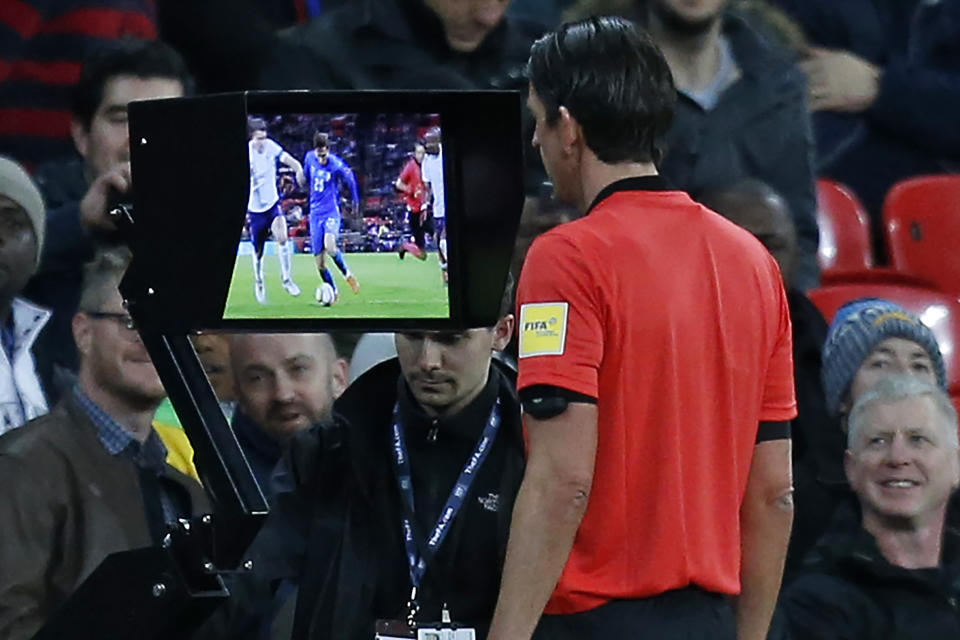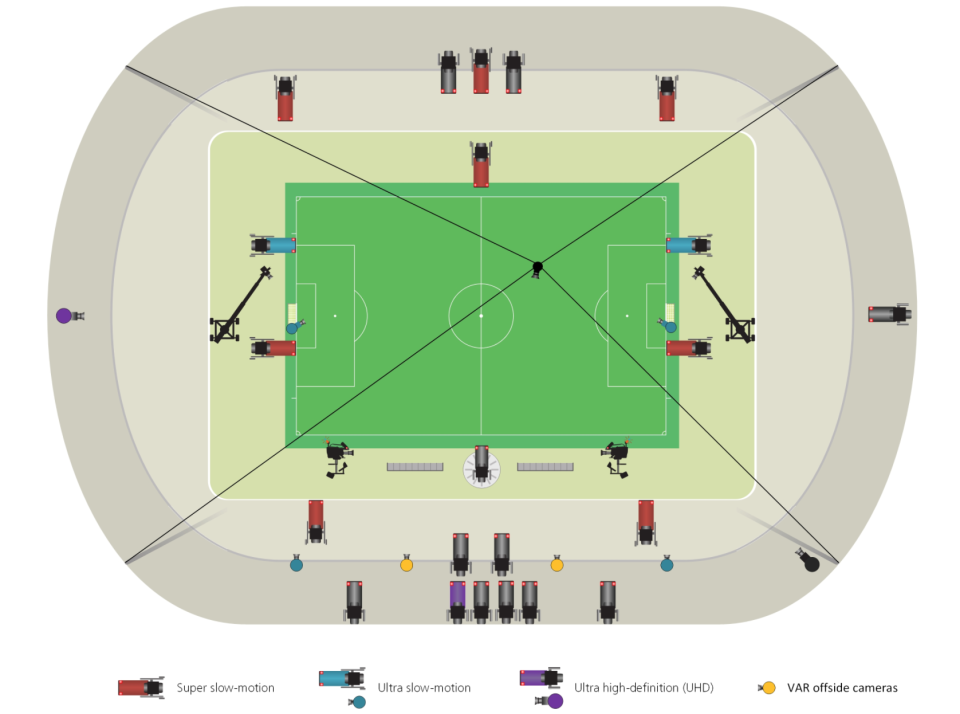FIFA's World Cup VAR plans look great, but that doesn't mean they'll work great

Less than two months before video assistant referees make their controversial World Cup debuts in Russia, FIFA unveiled its comprehensive VAR plans for the 2018 tournament on Wednesday. And in a surprising development, those plans look great.
So great, in fact, that it’s initially difficult to see how they could go awry. There will be four video assistants monitoring replays per match, each with specific responsibilities. VARs will have access to 35 different cameras at each stadium, some of them “ultra slow-motion” or “ultra high-definition.” And, perhaps best of all, the reasoning behind their decisions will be communicated to both TV and live audiences via a “VAR information system” that will be connected to big screens in stadiums.
In other words, now that FIFA has decided to adopt video review for the 2018 World Cup, it is going to do everything it can to adopt video review of the highest order. It is leaving no stone unturned. The detail and thoroughness of its plans are impressive.
Except that the specificity and thoroughness of plans aren’t the problem with VAR. The implementation and execution of it are. And no fancy diagrams or wordy procedural descriptions can change that.
The vast majority of VAR complaints, and the vast majority of VAR gaffes, are the results of referee error. The vast majority of referee errors are the result of inexperience. And FIFA is going to entrust the first video reviewed World Cup to some referees who have never operated with VAR in competitive matches.
Despite extensive preparation by both refs and video assistants, the rollout of VAR in domestic leagues such as the Bundesliga and Serie A has often been rocky. That’s because no training exercises or exhibition matches – or the “VAR training camp” happening this month in Italy – can effectively simulate the in-game VAR-related decisions refs have to make, nor the atmospheres in which they have to make them.
That, precisely, is the real worry about VAR at the World Cup. It’s that referees from countries like Spain, Slovenia, El Salvador, Ethiopia, Bahrain and Tahiti, whose domestic leagues don’t use VAR, will falter when asked to use it for the first time in competitive matches in Russia.
FIFA’s plans might assuage a bit of concern. Its camera layout ensures that video assistant referees will have every angle necessary to gather as much information as possible:

Its specified division of labor between the VAR, AVAR1 (assistant video assistant referee 1), AVAR2 and AVAR3 sounds great in theory. One AVAR is solely responsible for offside calls. Another AVAR informs the main VAR about the state of live play while the main VAR views replays.
And the communication between the VAR team and the audience will both implement transparency and aid popular perception. Here’s FIFA’s explanation:
FIFA has developed a VAR information system for broadcasters, commentators and infotainment. For each match, a FIFA staff member informs the broadcasters, commentators and infotainment about the different steps of the review process, including information about the reason for the review and the outcome of the review, via a networked touch tablet.
The person operating the tablet is located in the video operation room and has access to the audio from the referee communication system as well as the camera angles the VAR is looking at. The VAR information system will also be used to automatically create VAR-specific graphic templates for TV and the giant screen in the stadium.
VAR, as a concept, is great. It is going to be a long-term positive development in soccer. The steps FIFA is taking to define the process and relay information to fans will take it toward that long-term goal.
But it is still subject to human decision-making and its fallibility. The ability and preparedness of referees who have never dealt with VAR in high-pressure situations is going to determine the success of the technology at the 2018 World Cup – not any information FIFA released Wednesday.
– – – – – – –
Henry Bushnell covers global soccer, and occasionally other ball games, for Yahoo Sports. Have a tip? Question? Comment? Email him at henrydbushnell@gmail.com or follow him on Twitter @HenryBushnell.
More soccer from Yahoo Sports:
• Bushnell: How to reconcile Man City’s money with its mastery
• Barcelona is 5 games from Invincibility. Why isn’t that a bigger deal?
• 10 reasons Man City ran away with the Premier League
• 9 things to know about the Champions League semifinal matchups
• A fan’s oral history of the USMNT’s nightmare in Trinidad

 Yahoo Sports
Yahoo Sports 

